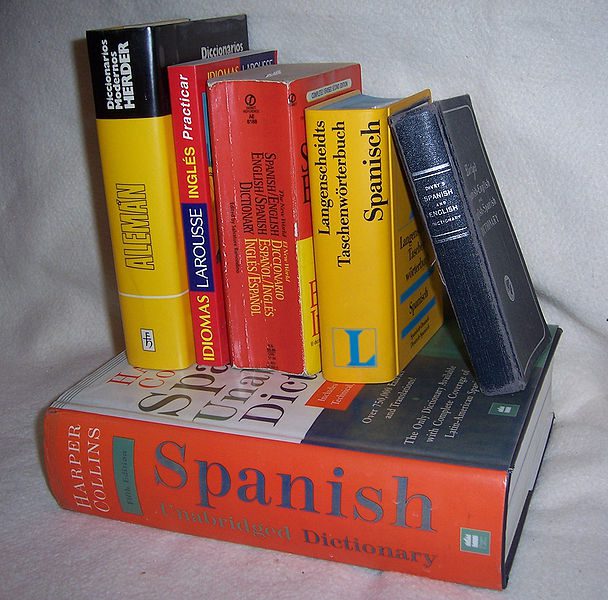
Featured on NBC News on Tuesday: “Rep. Jayapal asks that her name be properly pronounced after colleague gets it wrong; ‘Jayapal. If you’re going to say my name, please say it right. It’s Jayapal.'”
You have to listen to the twitter clip, of course, to hear it:
Rep. Lesko pronounced the name, well, as you’d expect according to English pronunciation rules: JAY (like bluejay) – uh – pal. Apparently it is actually pronounced JYE (like bye) – uh – pal.
And NBC continues by telling us that failure to pronounced names correctly is racist.
While mispronunciations can happen, Twitter users have pointed out that Lesko’s error was directed toward a colleague. Given their professional relationship, proper pronunciation is expected, if not required, and many people of color said that they found the moment all too familiar and that they respected Jayapal’s decision to speak up.
Experts said mispronouncing a name can be a form of racial microaggression.
Rita Kohli, a race and ethnicity scholar at the University of California, Riverside, said last month that mispronouncing names is part of moving through a diverse, multilingual world. Pronouncing a name correctly the first time can be difficult without the proper tools, but mispronunciations and Anglicization of names can suggest that the dominant culture is superior and that assimilation is the best option, she said.
Catherine Ceniza Choy, a professor of ethnic studies at the University of California, Berkeley, said last month that names are crucial to a person’s individual, family and ethnic identity. She said the simple act of learning people’s names acknowledges their history and presence.
So let’s start with this:
Generally speaking, we expect words to be able to be sounded out according to the writing conventions of the language we’re speaking. Yes, in English, there are words which don’t conform to these norms, or which require learning of more complex conventions — that is, once we learn that the “gh” in the ending “ight” is not (or no longer) pronounced, we expect to be able to sound out any word with this ending in a consistent manner. We also have become accustomed to loanwords pronounced according to their language of origin, and we know that the “t” is silent in “ballet” and “buffet,” the ending “e” is pronounced in “café” (regardless of whether your writing software automatically adds an accent mark), and “faux” is pronounced entirely differently than English rules would suggest.
Names, too, when they become common enough, we learn to pronounce according to the pronunciation rules of their languages of origin, at least more or less, taking into account the differences in sounds available to us: we use a “sh” sound in “Sean” and a “w” in Juan.
But this new set of demands goes further.
No one has a right to move to a country in which their name is not in ordinary use, and not a part of that country’s language, and yet demand that their name be pronounced according to the norms of their own native language. That’s true the first time, and that’s true the tenth time, especially in instances in which the name is difficult to pronounce (or remember the pronunciation of) or uses sounds which are not a part of the English language. That’s true for names which have their origins in other European languages with different pronunciation systems and that’s all the more true for names originally spelled in non-Latin alphabets, in which the transliteration into the Latin alphabet may follow a wholly different pronunciation rules. (After all, in grad school, my roommate’s name was transliterated from Chinese as Qi-Qing, which she advised me was pronounced “Chi-Ching”; she now goes by the name “Christine” professionally. There is no reasonable way to demand that an American should intuit the alternate use to which the Chinese have put the Latin letter Q, or X, let alone have studied pronunciation systems of all non-English languages.)
And this is not a matter of asserting that “the dominant culture is superior.” It’s a matter of acknowledging that the dominant culture is dominant, and that it’s the way the world works, every bit as much as it is that we expect English to be spoken in the workplace.
And, yes, I spent two years living in Germany. My name has a “th” which is a sound which doesn’t exist in German, and which Germans pronounce about as poorly as we Americans would fare pronouncing a German “ch.” And, no, I did not object to mispronunciations; to the contrary, it seemed terribly impolite to correct people, though perhaps it would have been different if it were a simple matter of switching out one accessible sound for another.
Should Rep. Jayapal have corrected Lesko? Of course there’s no reason not to do so in a polite manner: “just so you know, it’s JYE like bye rather than JAY like bluejay.” After all, I would correct misspellings of my name, when it mattered, anyway. But it’s not a matter of bias, not to know the pronunciation of non-English words, even if they are proper names.
Image: https://commons.wikimedia.org/wiki/File%3ABilingualDictionaries.jpg; By w:User:LinguistAtLarge (English-language Wikipedia) [GFDL (http://www.gnu.org/copyleft/fdl.html) or CC-BY-SA-3.0 (http://creativecommons.org/licenses/by-sa/3.0/)], via Wikimedia Commons












